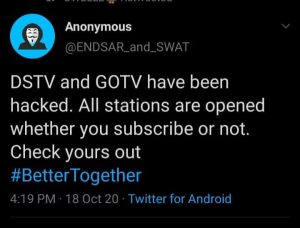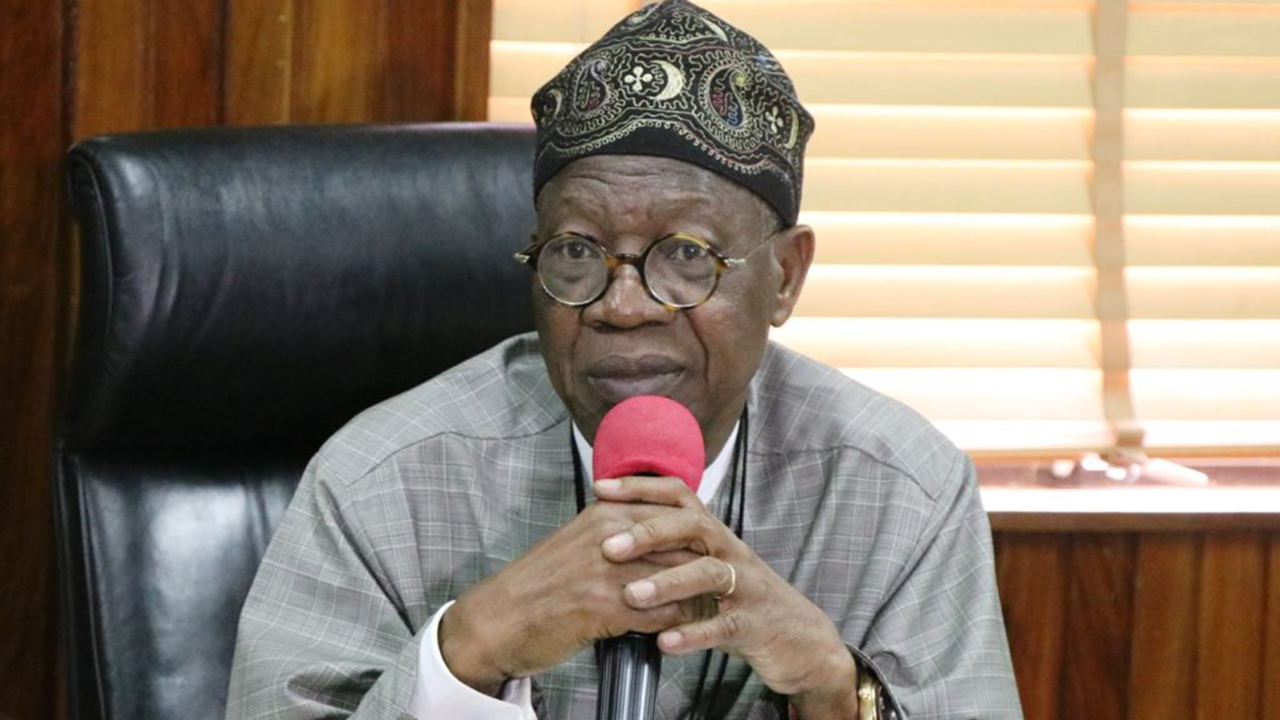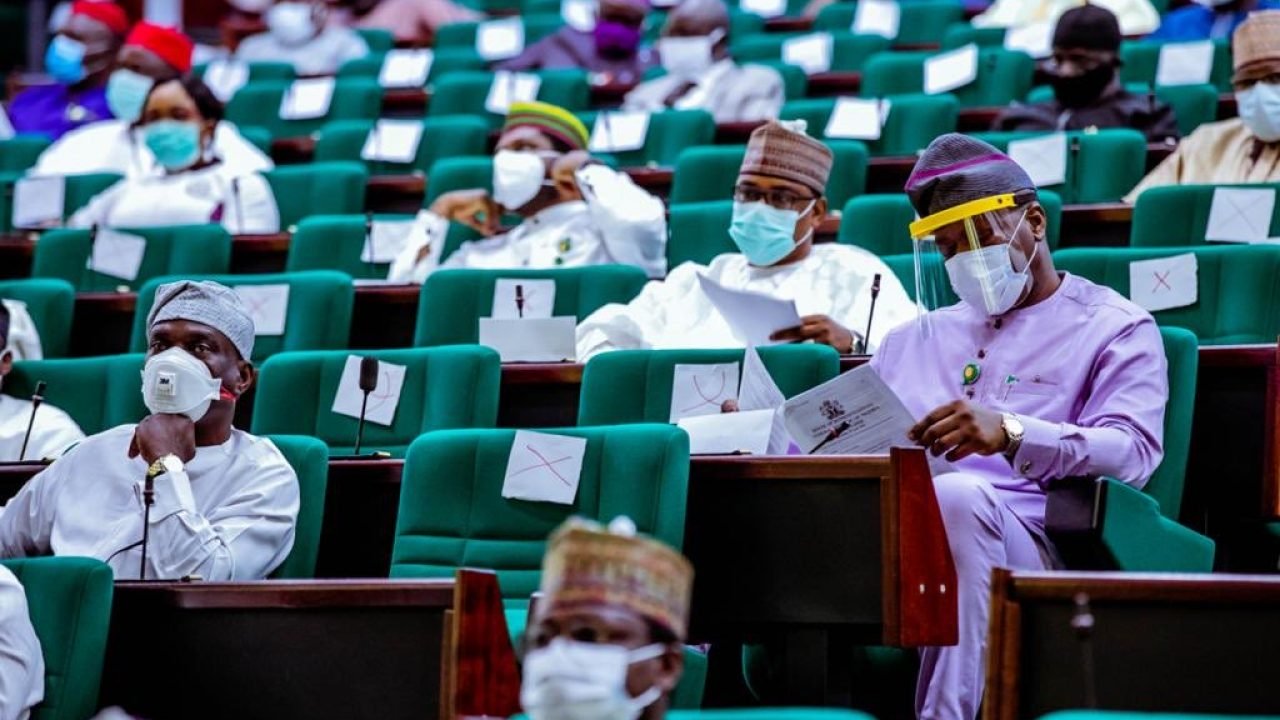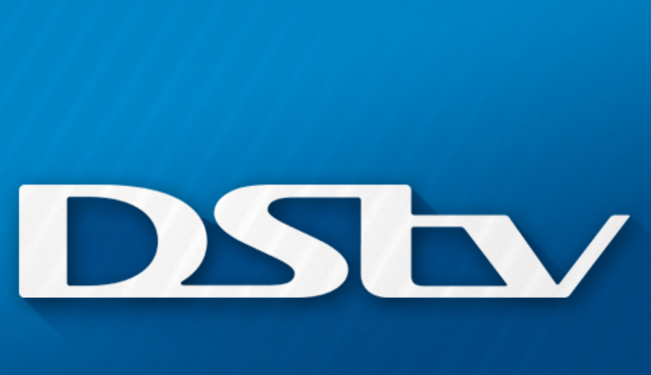By Okoh Aihe
I am sure as the coming of tomorrow that whoever doubted the capacity and intention of the 6th edition of the National Broadcasting Code recently released by the National Broadcasting Commission (NBC), is already convinced beyond all reasonable doubt, as the cliché would canvass, of the strength of that instrument. In so short a time there is a big catch. Obadiah Mailifia, a former presidential candidate, who spoke on the platform provided by Nigeria Info 91.5 FM, is doing the rounds with the security organisations as he was alleged to have breached sections of the Code bothering on Hate Speech. The station is also to face the full weight of the law by coughing out a fine of N5m as against N500, 000 that was the fine for such malfeasance.
So much fears have been expressed that the Code would constrict opposition and dissenting voices and antagonize free discourse in the public square. The people have a right to their fears and that right should be respected and interrogated for quality action to stem such fears.
However, I do want to say it is the responsibility of government to keep the people together, to ensure harmonious relationship in the nation state. Quite a number of people who badmouth the government on the new Code may not have read the book by Denise Uwimana, From Red Earth – A Rwandan Story of Healing and Forgiveness. The book paints a harrowing experience in a hellish genocide that claimed about million Tutsi in a hundred days; losing her husband, her loved ones with so many gory details, all because some tribal bigots who felt anointed for leadership were given the deadly latitude of spewing all kinds of scurrilities on radio.
Even from the opening Chapter, Denise draws an apocalyptic curtain: “We stayed where we were, my mind replaying its despairing reel: I had no way to protect my children from impending peril, nowhere safe for my baby to be born.”
A few bold voices have asked: How far away are we from the Rwandan situation? Why do some people have to behave without fetters, flaunting ownership and anointed mentality?
I will be wrong here to assume that the present administration is not troubled by these frustrations, and is not also doing something about it. Part of doing something is that Code. Supposedly to put an end to the invidious danger that uncontrolled speech can cause. But why are the people outraged?
The simple answer may be that the Code is being pushed by a politician in the person of Alhaji Lai Mohamed, Minister for Information and Culture, instead of the regulator, the NBC. The fault does not lie in Lai. This story may interest you. Long ago, a friend attending the National Association of Broadcasters Conference in Las Vegas (NAB) was very interested in a particular camera lens, and was asking for more details on the product. Somebody standing by him asked a question looking into his eyes: why are you interested in the lens? Are you a politician? Before my friend could respond, the fellow concluded: It is only politicians that will need the lens to double the number of people in their campaign crowd! That was in faraway America. All over the world, politicians, except a few, enjoy very little credibility. Perhaps this is the reason governments create certain parastatals to take charge of some aspects of administration and industry in order to avoid political interference. Except that the air is already fouled up, it may have been better for the regulator, the NBC, to tell their story no matter how unpalatable for the stomach. The regulator should have a head large enough to carry its worries.
One question troubles me. What is the difference between hate speech and abnegation of responsibilities, leading to wanton killings and near anarchical scenarios inflamed by orchestrated carnage? So, Obadiah is nearly guillotined metaphorically for the things he said that were wrong; pray, who is attending to the truth elements in his presentation? The silence in the land is not a prelude to euphoria but a surreal reality that is extremely foreboding except urgent measures are taken by the authorities.
Broadcasting has a role to play in putting tempers in check and putting people on a leash. But the sector is hardly at peace. So many issues are cropping up in the Code. The National Assembly has also joined the fray. Last week the upper house frowned at the amorphous and unaccountable relationship between government broadcaster, NTA, and Star Times, and also asked them to suspend a recent increase in subscription. The law makers observed quite rightly that Star Times is not licensed by the NBC. What they may not also know is that even the NTA is not licensed by the NBC. It is an organization above the law, flaunting the kind of ignorance and arrogance that killed NITEL. This may therefore be the reason why NTA is not at the frontline of broadcast development and innovation in the country; the laurels go to the private broadcasters. NTA lives in the past and remains a government bulletin outlet.
For me the broadcast sector was already too incommodious to accommodate some other developments. But not in our land where things happen in torrents and the bizarre struggles for recognition. In the manner of Star Times, Multichoice, last week announced a price increase on the DSTV platform. Was the announcement wise at this time or is it a marketing strategy or some kind of desperate decision to inflict final pain on the buying public once and for all so that things could be resolved as they rush towards a dénouement? In the message to a subscriber, DSTV wrote: “Dear Customer, please be advised of a price adjustment on your DStv Premium package form 1 September. Your new monthly subscription will be N18, 400.”
I have tried to confirm this information with the regulator without success, meaning the regulator may not have been notified before the increase was announced. Even if the DStv sector is different from the telecommunications industry where a determination has to be made by the regulator before any price increase, the broadcast regulator must, at least, be notified of developments in the sector to enable it speak with authority. The announcement seems to have come from outer space, without any stakeholder engagement, and with some kind of inexplicable disregard for the customers.
There has been no proper explanation for this. But an industry source told me that apart from its inability to communicate properly with the relevant stakeholders, DStv is facing very hard times in Nigeria, recording losses in three successive years. Unfortunately, COVID-19 has come as a leveler for businesses, even ruining nations completely. With incapacity to reinvent, the nation’s economy offers little hope and very low resistance to collapsing market structures. Industries are shutting down. Jobs are lost in thousands. The country’s currency, the Naira, is taking a battering in the market, running towards the N500 to One US dollar mark. It is more trouble for the land, more troubles for organisations like DStv that offer luxury items. It is a time for hard choices and DStv has made one, so it seems.
Unfortunately, figures from the National Bureau of Statistics (NBS) are not also very supportive. The economy contracted by 6.1 per cent year on year in Q2’20.The GDP contraction represented the steepest in over three decades…. Sectors with steepest declines include: Transport and Storage (-49.1%), Accommodation and Food Services (-40.2%), Construction (-31.7%), Education (-24%), Real Estate (-22.0%) and Trade (-16.6%).
The economy was already going downhill before COVID-19 struck. The figures above mean more trouble for the nation. But this is no time to despair or to look out for enemies or dissenting voices. The times call for inclusive thinking, humility and creativity in building a resilient economy with the solid human capital available in our country. The truth is that comfort is not near at the moment. More organisations will exit Nigeria leaving us to either swim out of the situation we find ourselves or sink. The nation has more than is needed to achieve greatness. The major hindrance on our path is our penchant for obsequiousness and incapacity to speak truth to power and situations.
One last word for Multichoice. About fourteen years ago, at Rhodes University, South Africa, a gentleman made a presentation of a research work that was funded by some South African business operators, to look at South African companies doing business in other African countries. The fellow did a great work but came to a very grim conclusion: A few years down the line South African businesses operating in other African countries will be chased out by their host environments because of their pride.
That rings a bell in my head always and I have seen this conclusion at work a number of times. This is something for Multichoice Nigeria to ponder over each time it is a taking a far reaching decision.
Okoh Aihe writes from Abuja

![BREAKING [EndSars]: ‘DStv, GOtv hacked by Anonymous, all channels now opened for free viewership?’](https://thenewsguru.ng/wp-content/uploads/2020/06/images-2.jpeg)


